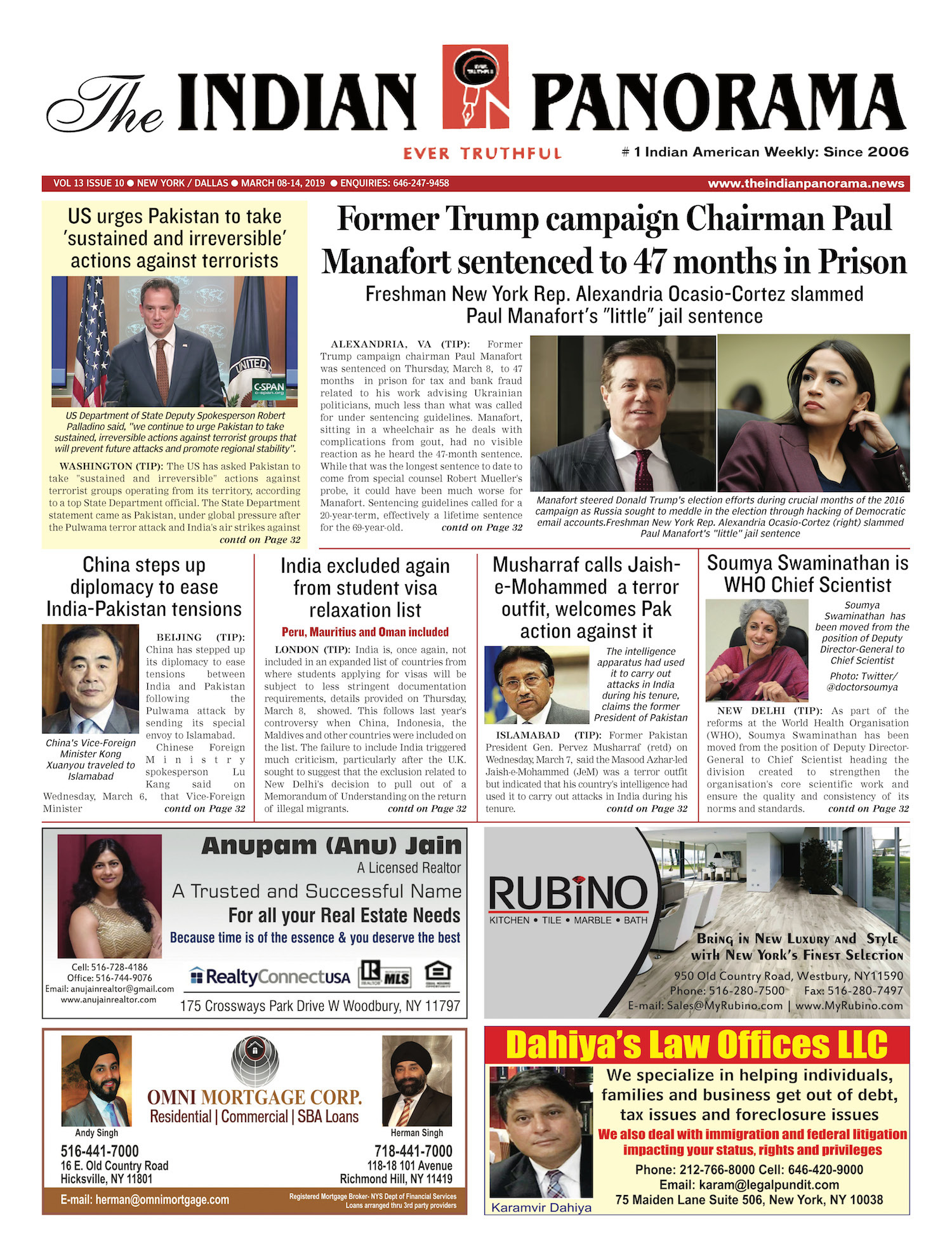
By Prabhjot Singh
OTTAWA (TIP): The Canadian government has advised its citizens to avoid travel to the Union Territory of Jammu and Kashmir, and areas of Gujarat, Punjab and Rajasthan that are within 10 km of the border with Pakistan. Within two days of India issuing a travel advisory to its citizens planning short- or long-term travel to Canada, here comes a veiled retaliation. The Canadian government has advised its citizens to avoid travel to the Union Territory of Jammu and Kashmir, and areas of Gujarat, Punjab and Rajasthan that are within 10 km of the border with Pakistan.
The warning area excludes the Wagah Border in Punjab. It, however, avoids mention of Sri Kartarpur Sahib corridor, which is also within 10 km of the periphery of the border with Pakistan.
Punjabis and Gujaratis are among the largest Indian communities in Canada.
The border areas of Gujarat, Punjab and Rajasthan, the advisory says, have an unpredictable security situation. There may be presence of landmines and unexploded ordnance in some of these areas. The latest travel advisory of the Canadian government was posted on the web site of the Canadian High Commission in New Delhi on Tuesday. It also wants Canadians to avoid traveling to Assam, Manipur due to insurgency and terrorism. The Canadian update comes two days after the Indian Ministry of External Affairs (MEA) had advised its citizens, including students, to observe “due caution and remain vigilant in view of the sharp increase in incidents of hate crimes, sectarian violence and anti-India activities in Canada.”
“Avoid all travel to areas within 10 km of the border with Pakistan in the following states due to the unpredictable security situation and presence of landmines and unexploded ordnance: Gujarat, Punjab Rajasthan,” says the advisory.
The Canadian Travel Advisory says there are certain safety and security concerns, or the situation could change quickly. Be very cautious at all times, monitor local media and follow the instructions of local authorities, it adds.
It has categorized “unsafe areas for travel” into two groups. The first group is about areas of avoiding non-essential travel. Included in this category are Manipur and Assam. In the second category of “avoid all travel,” the Canadian Advisory mentions Gujarat, Punjab, Rajasthan and Union Territory of Jammu and Kashmir.
Advising avoid travel to the Union Territory of Jammu and Kashmir, it says that there due to unpredictable security situation, there is a threat of terrorism, militancy, civil unrest, and kidnapping. It excludes travelling to or within the Union Territory of Ladakh. It further says that the security situation in the Union Territory of Jammu and Kashmir is tense. There are high risks of violent protests, civil unrest and acts of terrorism and militancy.
“Violent clashes between militants and security forces occur regularly. Terrorist attacks against security forces have led to civilian casualties. Further attacks could take place at any time. You could find yourself in the wrong place at the wrong time.
“The Indian army has enhanced powers in this territory. Authorities may impose curfews and security restrictions on short notice.” It advises visiting Canadians to carry their identity cards all the time, avoid gatherings and demonstrations, expect a heightened security presence and security checks, besides following the instructions of local authorities. “The level of tension between India and Pakistan may change suddenly. You could experience difficulties when travelling between the two countries. You may be subject to scrutiny if officials from either country become aware that you have recently travelled to the other.
“The security situation along the border with Pakistan, especially along the Line of Control (LoC), which separates the Union territories of Jammu and Kashmir and Ladakh from Pakistan-administered Kashmir, remains volatile. “Cross-border gunfire and shelling are occurring sporadically along the LoC. The presence of landmines and unexploded ordnance also constitute a risk. “Although international travelers regularly use the Wagah border crossing linking Amritsar, India, to Lahore, Pakistan, it remains vulnerable to attack. Security measures are in place. You may experience long delays,” adds the Advisory.
While referring to north-eastern States of Assam and Manipur, the Advisory says that several extremist and insurgent groups, who are active, regularly target local government and security forces and may use various criminal activities to finance their activities. Ethnic tensions in the States can also lead to conflict and civil unrest.
It also says that there is a threat of terrorism in India, particularly in the Union territory of Jammu and Kashmir, sates of Manipur and Assam besides areas of East India where Naxalites groups are active
“Maoist extremist insurgents, known as Naxalites, are responsible for the majority of terrorist attacks in India. These groups are usually based in rural and forested areas within zones of concerns, as defined by the Government of India, which include Andhra Pradesh, Bihar, Chhattisgarh, Jharkhand, Madhya Pradesh, Maharashtra, Odisha, Telangana, Uttar Pradesh and West Bengal. “Extremist and insurgent groups usually target government and security forces, and sometimes, trains and railway tracks. While tourists are not usually specifically targeted, bystanders could be affected. Be particularly vigilant during election periods and in the lead-up to, and during, religious holidays and times of national significance, like Republic Day (January 26), Eid, Independence Day (August 15), Diwali.
“Targets of terrorist attacks could include government buildings, including schools, places of worship, airports and other transportation hubs and networks, public areas such as tourist attractions restaurants, bars, coffee shops, shopping centers, markets, hotels and other sites frequented by foreigners. “While in India, always be aware of your surroundings when in public places, if you see a suspicious package, immediately leave the area and report it to authorities,” concludes the Advisory.





1 Trackback / Pingback